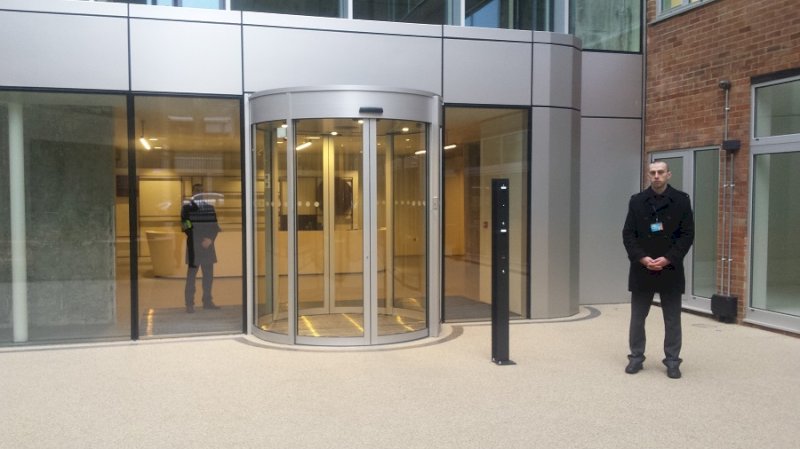The Essential Duties of a Security Guard: A Comprehensive Guide
4 weeks ago - 3 min read
Security guards are the backbone of safety for businesses, properties, and individuals. Their role extends beyond simply being a visible presence—they are trained professionals responsible for maintaining order, preventing crime, and responding effectively to emergencies. Whether working for Birmingham security services, a security agency in Birmingham, or private organizations, security guards perform a range of crucial duties.
Here’s a breakdown of their key responsibilities and why they are vital to maintaining a secure environment.
1. Patrolling and Monitoring Security in Birmingham
Security guards are tasked with patrolling construction sites, warehouses, hotels, car parks, universities, colleges, schools, and healthcare facilities. Their presence alone serves as a deterrent to trespassers and criminal activity.
- Routine Patrols – Guards walk or drive through assigned areas, ensuring everything is in order.
- Random Inspections – Unscheduled patrols keep potential intruders on their toes.
- Observation & Reporting – Security professionals note unusual activity, document concerns, and escalate serious threats.
By combining physical patrols with CCTV surveillance, security guards provide layered protection across sites.
2. Controlling Access Points & Visitor Screening
As gatekeepers of security, guards manage entry points to ensure only authorized personnel access sensitive areas. Whether at a showroom, corporate office, or residential complex, they enforce security protocols by:
- Verifying identities and credentials of visitors and employees.
- Operating keycard systems, biometric scanners, and visitor logs.
- Detecting suspicious behavior and preventing unauthorized access.
From concierge security in Birmingham to front-of-house security, these professionals balance hospitality with strict security measures.
3. Surveillance & CCTV Monitoring
Modern security guards leverage advanced CCTV systems to oversee large properties, including retail stores, loss prevention areas, and car parks. Their responsibilities include:
- Constantly monitoring camera feeds for suspicious activity.
- Identifying potential threats, from shoplifters to unauthorized intruders.
- Analyzing and preserving video footage for legal or investigative use.
- Integrating surveillance data with alarm systems for a rapid response.
Their watchful eyes significantly reduce incidents of theft, vandalism, and trespassing.
4. Emergency Response Coordination
Security guards play a critical role in handling fire alarms, break-ins, medical crises, and workplace violence incidents. Their duties in an emergency include:
- Assessing threats quickly and determining the best response.
- Communicating with law enforcement and emergency services efficiently.
- Executing evacuation plans and guiding people to safety.
- Providing first aid or CPR when necessary.
5. Incident Reporting & Documentation
Security guards meticulously document all incidents to ensure accurate records. Whether working at retail stores, corporate offices, or hotels, they:
- Write detailed reports on security breaches, thefts, and emergencies.
- Record time, location, and involved parties for future reference.
- Use real-time digital tools to streamline reporting.
These reports not only assist law enforcement but also help businesses refine their security services for future prevention.
6. Enforcing Security Protocols
Security isn’t just about reacting—it’s about preventing. Guards are responsible for ensuring everyone follows safety and security protocols at:
- Construction sites – Preventing unauthorized access and enforcing safety regulations.
- Colleges & universities – Ensuring student safety and monitoring for unauthorized behavior.
- Healthcare facilities – Keeping patients, staff, and sensitive data secure.
Regular security audits, employee screenings, and safety drills help minimize risks.
7. Property & Asset Protection
From warehouse security to loss prevention services in retail, security guards help protect valuable assets by:
- Conducting routine checks on storage facilities and entry points.
- Identifying weak security areas that need reinforcement.
- Preventing theft, vandalism, and unauthorized access.
Their vigilance ensures businesses avoid costly losses and maintain a secure environment.
8. Managing Alarm Systems
Security guards are the first responders to alarms, whether it's:
- Intrusion alarms signalling unauthorized access.
- Fire alarms requiring immediate evacuation.
- Access control system breaches needing investigation.
They swiftly determine the cause of alerts and take action—whether it's contacting law enforcement or resetting systems after resolving a false alarm.
9. Communication with Law Enforcement
Guards act as the primary liaison between security agencies and law enforcement, providing crucial information for investigations. They:
- Maintain professional relationships with police and emergency responders.
- Relay detailed incident reports for official records.
- Support law enforcement during arrests, investigations, and emergency responses.
Their ability to accurately convey information can make the difference between a minor incident and a major security breach.
Conclusion
Being a security guard is much more than standing watch—it’s about protecting people, assets, and businesses with vigilance and professionalism.
Whether securing construction sites, warehouses, car parks, or retail stores, their dedication, skills, and quick response abilities make them indispensable in today’s security landscape.
By mastering these essential duties, security guards contribute significantly to creating safer communities and workplaces.